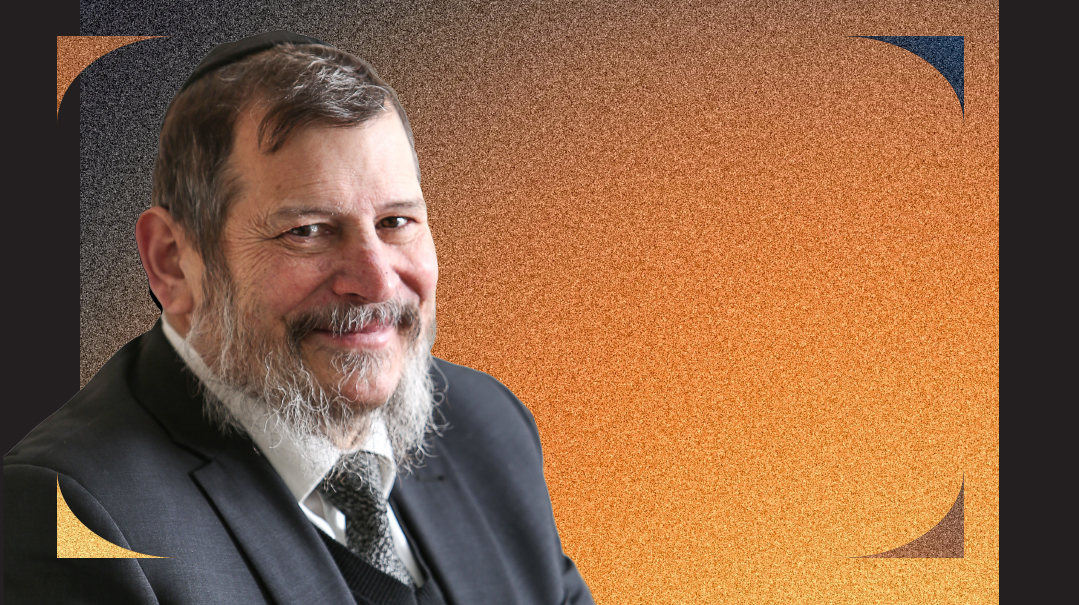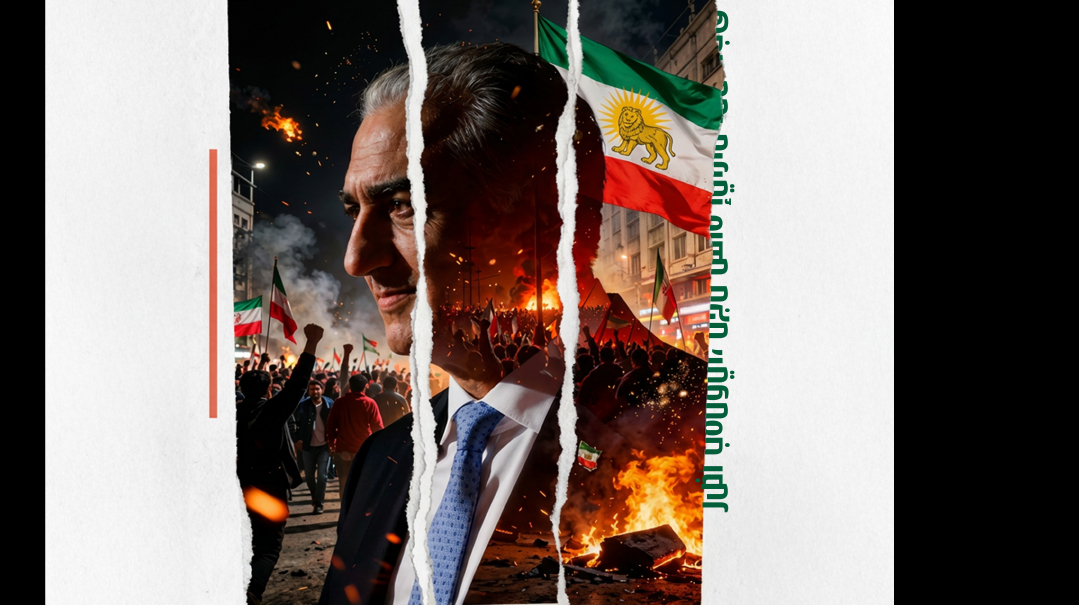Not in Vain

Summoned to bring a double sacrifice, Devory Paley shared her bedrock faith with an entire nation
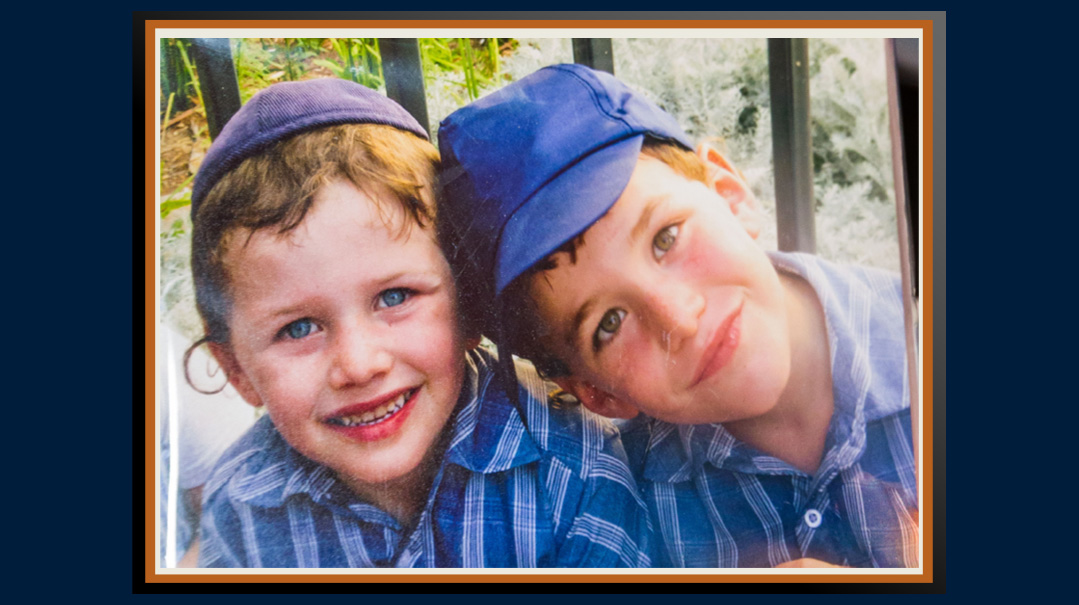
Photos: Elchanan Kotler, Flash90, Family archives
The newly renovated apartment on 41 Rechov Mintz in Jerusalem’s Ramot neighborhood is a testament that life can move on even in the shadow of overwhelming tragedy.
For these walls witnessed both unimaginable pain, and Divinely endowed reserves of strength and courage to find shards of light even in the darkest places.
It’s the home of Rabbi Avraham Noach and Devory Paley, a quiet, unassuming couple suddenly flung into the Jewish spotlight last February when their two little boys were murdered by a terrorist on Erev Shabbos while waiting for a bus to a family simchah. Five-year-old Yaakov Yisrael was killed instantly and seven-year-old Asher Menachem (Ushi) died a few hours later, while Reb Avraham Noach, his lower body crushed and with a traumatic head injury, was rushed unconscious to Hadassah’s ICU. Shlomo Alter Lederman, a young chassid married just five months, was also killed in the ramming attack.
Today, in what can only be called a miraculous recovery, Reb Avraham Noach, a longtime avreich, has returned to kollel standing on his own two feet, while Devory is trying to unpack the boxes stacked against the wall in her freshly expanded living room (most of them filled with seforim, but some also holding notebooks, pictures, letters, and gifts from people around the world she’d never even met before). In the background there’s the cooing of a smiley six-month old baby named Yonatan Refael, born just two days after the shloshim of their murdered sons.
Good people helped them renovate their apartment so it would be wheelchair-accessible when the prognosis for Reb Avraham Noach looked grim, but even though they no longer need a ramp, Devory sees her enlarged walls and spanking new floor tiles as a metaphor for her own life. Through the fog of tragedy there can be sun; through searing pain there can also be profound meaning, connection, healing — and even joy.
During the shivah, as the cameras clicked and the press and video teams crowded her once-private space, Devory emerged as a tower of strength for a grieving public who drew their own measure of comfort from her rock-solid, unwavering faith. While microphones were being pushed at her, and public figures (including Bibi and Sarah Netanyahu) along with their security details arrived for shivah visits, Devory — in an advanced stage of pregnancy and flanked by six traumatized children — suddenly found another voice: The public wanted — needed — to hear words of emunah, to see that a Jew doesn’t break in the face of the most excruciating decrees. That there is so much we don’t understand, yet we trust in our loving Father who has the plans all worked out.
And she stepped up to the plate.
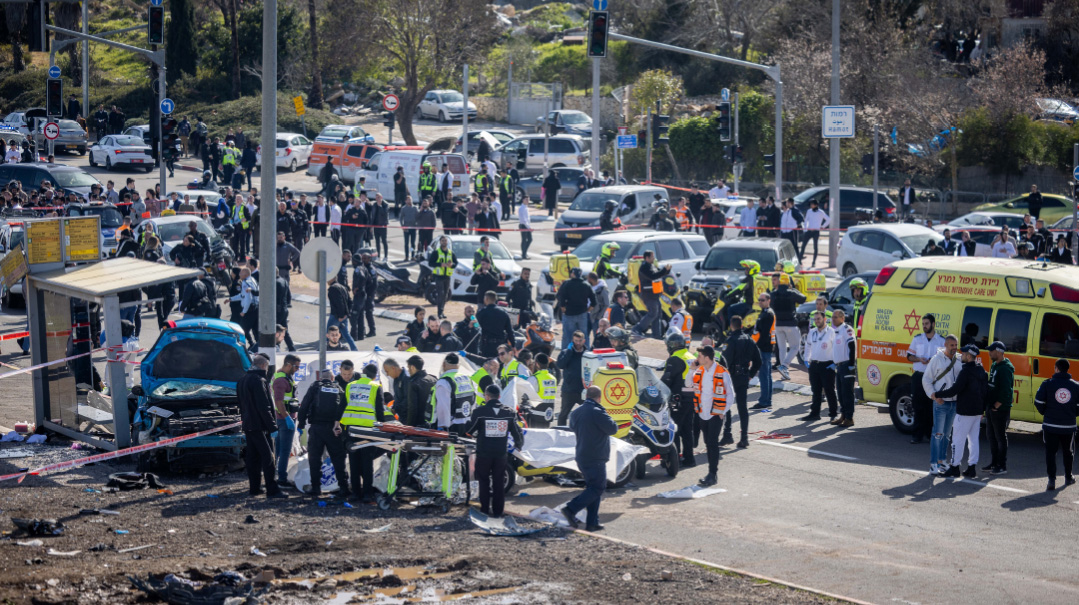
Erev Shabbos, Devory Paley and her family were on their way to a simchah. Now they had to arrange a burial
T
he first day, Devory admits, she was caught off guard.
“We’d just buried two children, my husband was in a coma, and it felt like the entire world was converging on us for some comment or reaction,” she remembers. In fact, there were so many people crowding into the small apartment that after the first day of shivah, a tent was erected in the parking lot. “There were so many reporters and cameras and I wasn’t sure how to react to it all. Should I give interviews? What should I talk about? How should I answer?
“I received direction from rabbanim, and Hashem gives special kochos. If you’d asked me before if I’d be able to function in the middle of this horrific scenario we found ourselves in — two children dead, a husband unconscious and fighting for his life, several children suffering severe trauma — I don’t think I would have said yes. But very quickly I realized that this was much greater than our personal private tragedy. Two children, Erev Shabbos… this was something much bigger than me — a korban tzibbur. And that meant that I, too, had to function from a place way beyond my own pain.
“The truth is, I became a public figure against my will. It’s so far from our lifestyle — up until the attack, we were just a regular family coping with the regular challenges of life. And really, what could I tell the public? Even today people are still knocking on my door, calling, sending letters, asking me how they can improve, what commitments they can make as if I’m some kind of mekubal. All I can say is that Hashem wants us to get closer to Him, each and every one from their place, wherever they’re holding. From the outset, I sensed that these children were a korban, and I prayed that they shouldn’t be a korban for naught. Today I see how much elevation their deaths triggered, how many thousands of resolutions and good deeds have emerged from so many unexpected places.”
The walls of the shivah tent heard so many stories, absorbed so much pain and tzaar from Am Yisrael. The family was consoled by Michal Gross, who lost two daughters nine years ago after an extermination gone bad, by Mrs. Elchadad, who lost two sons in Meron in the Lag B’omer tragedy, and others who’ve suffered loss. There were so many groups, Jews of all sectors, who somehow felt this was their tragedy as well, and Devory’s words of encouragement provided a way for others to navigate the deepest, most unimaginable pain and created enduring ripples of connection and gratitude.
Like the group of public high school boys who lined up to tell Devory about all the pledges they’d made on behalf of the neshamos of Yaakov and Ushi. As each one announced his resolution — “I’m going to keep Shabbos,” “I’m going to honor my parents better,” “I’m going to put on tefillin every day” — Devory was genuinely grateful for this shared spiritual effort on behalf of her children.
“I want to share another important message with you,” she told these humbled young teenagers standing before her while dozens of visitors looked on. “You boys have your whole lives in front of you, while Yaakov and Ushi have already reached their tikkun. They can’t learn anymore, but you can. So please, keep growing, keep going forward.
“And I want to tell you one more thing,” she added. “Yaakov was a child who always said thank you, even for the smallest things. I once said to him, ‘Yaakov, you’re a genuine Jewish child, because a Jew, a Yehudi, always says thank you, todah [a word that derives from the same root]. You know, we have a saying in our house, ‘Whenever something goes wrong, don’t say “oof,” say perek Kuf [Chapter 100 in Tehillim, mizmor lesodah, a song of thanks].’ And that’s something we can all commit to: When life gets frustrating, when the day doesn’t go our way, to remember that we are Yidden, and a Yid always says thank you, because everything that happens to us is from Hashem, and it’s always for our good.”
After that, “Don’t say Oof, say perek Kuf” somehow took on a life of its own. The slogan that emerged from the shivah tent was soon on bumper stickers and refrigerator magnets, along with the eternally smiling faces of Yaakov and Ushi Hy”d.
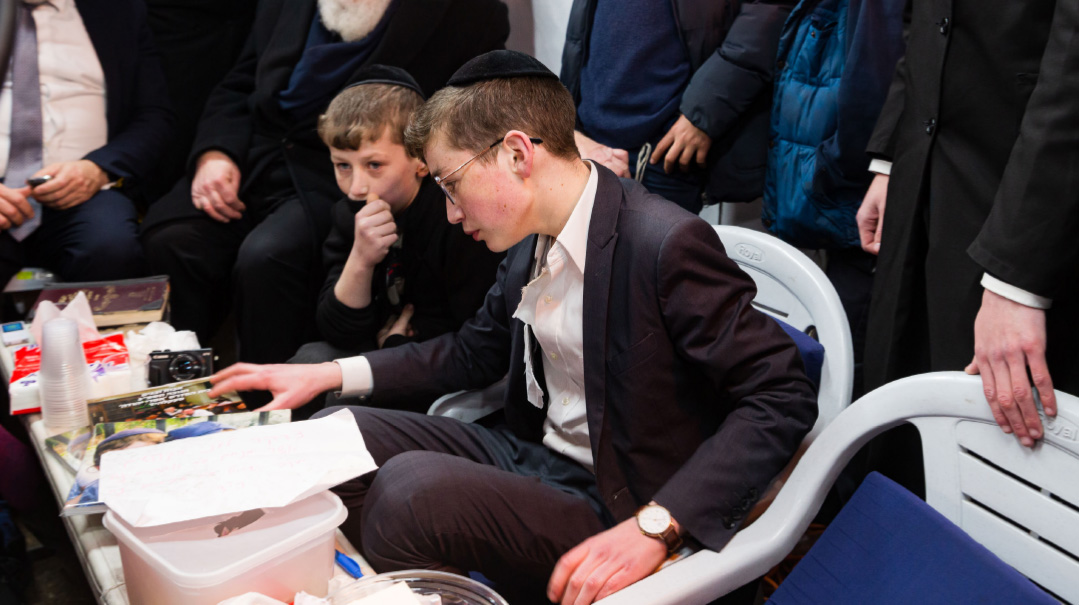
Moishy and Tzviki, two young boys sitting shivah as the men in the family, while their father was in a coma, fighting for his life
Which Child Was It?
In hindsight, Devory sees her focus on gratitude as a form of preparatory work for her spiritual muscles before the tragedy hit. That, she relates, is one way she copes with the constant flashbacks to that fateful Friday afternoon of 19 Shevat/February 10, that upended her family’s life forever. Every night, before sleep overtakes her, the same scenes replay themselves — those split seconds that divide “regular life” from a cosmic shift that catapulted her into a new, irrevocable reality.
The previous Monday, the family celebrated a Paley family wedding: Reb Avraham Noach’s sister married off a daughter. It was an especially meaningful simchah for both the Paley and Broner families, who were still reeling from tragedies of their own. A few years before, Reb Avraham Noach’s brother passed away, leaving a young widow and eight orphans. And on Simchas Torah morning in 2021, Rav Dovid Broner, Devory’s brother and the mashgiach in Yeshivas Netivos Chochmah, was found lifeless in his bed after elevated dancing with his talmidim and sifrei Torah the previous night. He, too, left a widow and eight children.
There was a family sheva brachos on Thursday night in Bnei Brak, and there would be Shabbos sheva brachos there as well. Devory and her family considered staying in Bnei Brak overnight, but then decided to return to Jerusalem and make the trip back before Shabbos. The children had school and cheder, and why miss a few precious hours of Torah learning?
So the children went to cheder in the morning, came home, got dressed for Shabbos, went through the building collecting tzedakah as they did every week, and then headed off to the bus stop just down the hill with their father. The Paley clan didn’t all fit into the family car, and Tzviki, 16, agreed to travel with his three younger brothers on the bus to Bnei Brak. No one really wanted to go on the bus, but in the end Yaakov and Ushi agreed, telling each other, “If Ima and Abba want us to, then we’ll be mevater….”
Reb Avraham Noach got out of the car to see if a bus was coming, Yaakov, Ushi, and nine-year-old Moishy behind him. Tzviki was still in the car, about to get out himself, when suddenly, a terrorist in an oncoming car veered out of his lane, gunned the gas, and slammed into the bus stop. Yaakov, Ushi, and Shlomo Lederman didn’t have a chance. Reb Avraham Noach was flung several feet in the air and landed with a thud. Within seconds, the terrorist was neutralized, the young Mrs. Lederman ran to her husband who was barely alive (he died soon afterward in the hospital), and Tzviki, watching a horror that no child should see, willing himself to look and not look, ran to nine-year-old Moishy, who’d been only lightly injured, and in the midst of the hysteria and shock, had the fortitude to turn his face away so he wouldn’t see the carnage that had visited his family.
Back at home, Devory had finished packing and organizing the rest of her family — girls ranging in age from three to 19 — and was getting dressed herself when her children started banging on the door and screaming. Tzviki was on the phone, crying hysterically — “Ima! There was a terror attack! Everyone is on the ground, I don’t see Abba!”
“Tzviki had tried to call a few minutes before,” Devory remembers, “and when I didn’t answer, he called my sister-in-law, so within a few minutes, the news spread like fire. Now, I’m generally a pretty calm type, so I told him, ‘Let’s calm down, I’ll try to call Abba, everything will be okay,’ but then someone else took the phone — an officer or a paramedic — and asked me, ‘How many children did you have at the bus stop? Can you get over here now?’
“So I ran — halfway dressed for weekday and halfway for Shabbos — on the way meeting up with neighbors who had already heard something. The terrorist was dead, the area flooded with police and ambulances. By the time we got to the bus stop, the injured had already been taken away and the area was taped up, and the only details I knew were that they took a boy to Hadassah and that they took my husband to Hadassah Har Hatzofim. Tzviki is crying, the police are asking questions. And I keep asking, ‘Yesh harugim, was anyone killed?’ No one answers. Finally, I find out that there are several injured and one killed on the spot.
“After a few minutes, the picture starts to form: Moishy is in Hadassah Ein Kerem, primarily for observation, and I call one of my sisters to go there and stay with him. My husband’s brother is on his way to the trauma center in Har Hatzofim, and one of my sons is in Shaare Zedek in critical condition.”
Someone had to break the news to Devory that the police needed a body identification. It was Bentzi Leizerovitch, longtime EMT, ZAKA member and communal activist, who was on the scene. She knew then that there was a body, but which child was it?
“They decided that we’d do the identification at the Shamgar funeral parlor,” Devory relates. “They’d already notified my brother to meet me there, and another sister was on her way to Shaare Zedek. I still didn’t know which child it was… and then I saw him. Sweet, good, beautiful Yaakov, wearing the new sweater we’d bought him for the simchah. And at that moment, I knew that if there was to be a korban, it would be him — this wonderful little boy who always said thank you.
“From Shamgar, I called my parents — these pillars of support who’d lost a son just a year and a half before. How to break the news without falling apart myself? Hashem helped. ‘Ima,’ I said, ‘there was a pigua and we have one korban, sweet little Yaakov.’ ”
And then there were the inevitable phone calls and arrangements. This being a terrorist attack, there was a full investigation with many questions that could have derailed the kevurah — but somehow everything fell into place. “This was all part of the Hashgachah,” Devory says. “Now, it was getting close to candlelighting time and somehow we had to conduct a funeral. Where would we find a kever an hour before Shabbos? Finding a kever in Yerushalayim is harder than finding an apartment.
“It turns out my brother, who passed away last year, is buried in a family plot on Har Hamenuchos that my grandfather arranged years back. In that same chelkah, there were two planter boxes of flowers, and each one of those spaces would fit a small grave.”
It would soon be sunset. Devory went to her sister’s home in Givat Shaul, took a shirt to tear and a pair of Crocs. From there the family converged on Har Hamenuchos, including Moishy, who was released into his aunt’s care in time for the funeral. Then the broken family headed to Devory’s parents’ home, where they would spend Shabbos.
And then came a decision that haunts her to this day.
“My sister, who was with Ushi in the hospital, called me. ‘Listen,’ she said, ‘Ushi is in a really bad state. Do you want to say goodbye to him?’ I didn’t know what to do. Of course I wanted to be with him, but he was already near death, and the rest of my children were shattered, traumatized. They were about to enter Shabbos as mourners with their father in critical condition. How could I disappear on them and leave them alone over Shabbos? I knew my place was with them, and that Ushi was in the best hands with loving relatives storming the heavens on his behalf.
Over the course of Shabbos, Devory’s sister slipped into her parents’ home. “I realized that if she was no longer at Ushi’s bedside, it meant she had bad news. I knew then that Ushi, too, was gone. Later, the doctors told us that at the time of his petirah, he looked like a malach. Ushi — Asher Menachem — born on Tishah B’Av, named for the nechamah of Mashiach, and may his soul somehow find a way to comfort us now.”
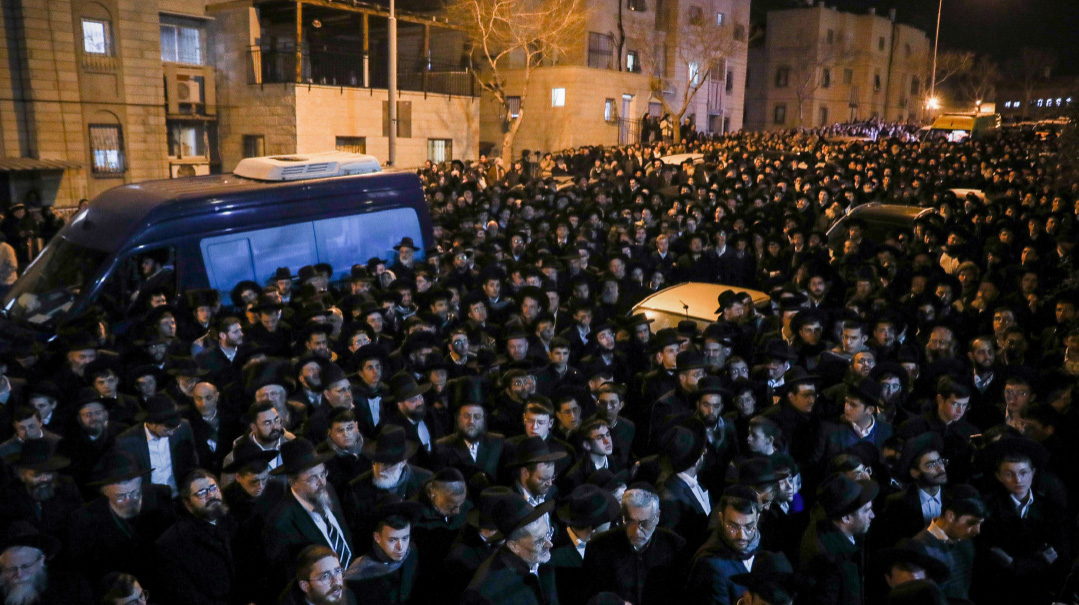
Another funeral. “When my sister walked over on Shabbos, I knew Ushi was gone as well”
W
hile the searing pain of loss never disappears, Devory says that today, she can look back and see hints of a Divine plan and of hamtakas hadin — the “sweetening” of the decree. “We know that Hashem’s ways are hidden,” she says, “but even in our story, we can see Hashem’s Hand. During the shivah, Tzviki — who was really the hero of the shivah, a young boy flung into the spotlight, sitting as the man of the family with all the VIPs and rabbanim, revealing kochos none of us knew he had — was relating all the details of the Hashgachah pratis. It wasn’t pleasant and it wasn’t happy, but it was definitely Hashem’s Hand.
“For example, Tzviki asked, ‘Why did Abba take us specifically to this stop, which, even though it’s the closest to our house, is the last on the route and the bus is always packed by the time it gets here? I even asked Abba, why wait here? Why not turn left and go to an earlier stop like we always do?’
“Why? Because that’s exactly where they had to be. Why did Tzviki remain in the car an extra minute when everyone else had already gotten out? Why did Moishy stand exactly there and not there and wasn’t hurt, while his younger brothers were killed? And how is it that they were buried in the space reserved by a few flower pots? We know it’s a big zechus to be buried next to someone who died al kiddush Hashem, and my sister-in-law took comfort in that. She told me it’s a zechus for her husband to be buried next to two kedoshim.”
And, she says, there were so many miracles within the pain.
“I gave birth as soon as we finished shloshim. My husband regained consciousness before the shloshim, even though the prognosis was that it would take months. When he came to, he was able to tear kriyah and visit the boys’ gravesite. And two days later, he was with me in the delivery room. We were even hospitalized on the same floor. Yonatan has brought our family a tremendous nechamah and great joy.
“My father, Rav Amos Broner, who lost an adult son, a husband of a large family, shared a powerful explanation of the words we say every day in Shacharis — Hashem gozer u’mekayem: Whatever Hashem is gozer, whatever Hashem decrees, He also is mekayem us. He holds us up through all the pain and tragedy and sustains us so we don’t fall.”
“I’m not saying it’s easy, or that we are malachim. What wouldn’t I give for one more hug, one more sticky kiss? But we know that before the neshamah comes into the world, it’s shown everything it has to endure and is asked whether it agrees to its life’s trajectory. If I were shown this tragedy a week before, I would never believe that I would agree. You know, you read about the Meron tragedy, other terror attacks, all the heroism and strength, and you think, okay, that’s for other people. And then suddenly you’re in the middle of the story yourself.
“Hashem asked Avraham Avinu to sacrifice his son, but no one asked me. Even though, as I said during the shivah, if my children were asked, they would surely have agreed to sacrifice themselves for Klal Yisrael. Now, when I see the unbelievable things Klal Yisrael has done in their zechus, the unbelievable awakening of teshuvah, I know the korban wasn’t in vain.”
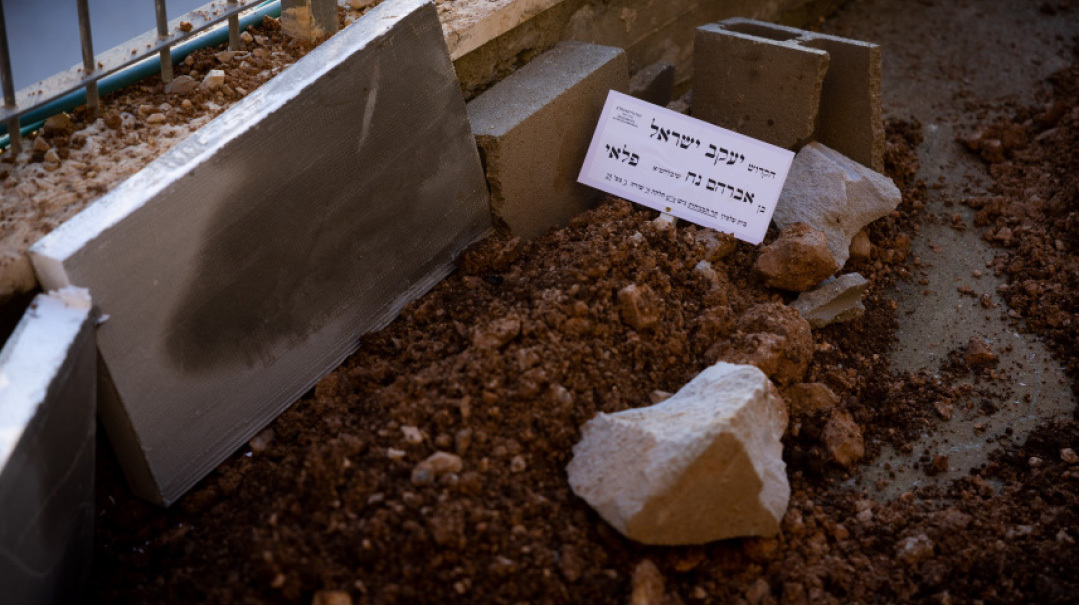
Two tiny burial spaces were hiding under some flower pots
Make a List
Devory says that now, more than ever, she tries to focus on gratitude. And it was a lesson she learned from a hospital volunteer.
“One day when my husband and I were back in the hospital for a checkup, a woman approached us in tears. She recognized my husband and couldn’t believe he was actually on his feet. She told me that she volunteers here every week, and was here the Sunday after the pigua.
“Your husband was here in the ICU, barely hanging on,” she told Devory. “I noticed his brother sitting with him saying Tehillim. I went up to them and told them, ‘You know, many years ago I gave birth and the doctors told me the baby only had a few hours to live, so I started davening and crying to Hashem. Then my sister comes in and she tells me, stop davening, take out a pen and paper and write down five things you see positive in this story. I didn’t know what she wanted from me — my baby was dying! But I put down my siddur and listened to her, and I actually found a few things that I could list: that the nurse is very nice, that I had proper arrangements for my other kids…. Today this child is a healthy young man. So I’m telling you, take out a pen and paper and make a gratitude list.’ ”
Finally Devory understood a mysterious message she’d received months earlier. “During the shivah, after all the visitors left, my kids would check our email to see the letters people sent. That Sunday after the attack, an email came in from my husband’s brother: Ten good things in the ICU today. I had no idea what it was all about. Now, after speaking to this volunteer, I knew.”
Making a conscious decision to focus on the shards of light within the heavy darkness is so, so important, she says, especially if you’re going through a hard time. “When Yosef Hatzaddik was sent to Egypt, plucked from the highest, holiest place to the lowest, most impure place on earth, the Torah goes out of its way to hint that there were sweet-smelling spices in the caravan instead of smelly kerosene, to make the trip a little easier.
“Doesn’t that seem incredibly petty? It’s as if a person, lo aleinu, is being shipped to his death in a cattle car and someone has some air freshener. Is that going to make a difference? The answer is yes. Because Hashem is saying to him, Yosef, you are going to the worst place on earth, but know that I am with you there. There’s a plan, and yes, it’s going to be really, really hard. But I’m not leaving you.”
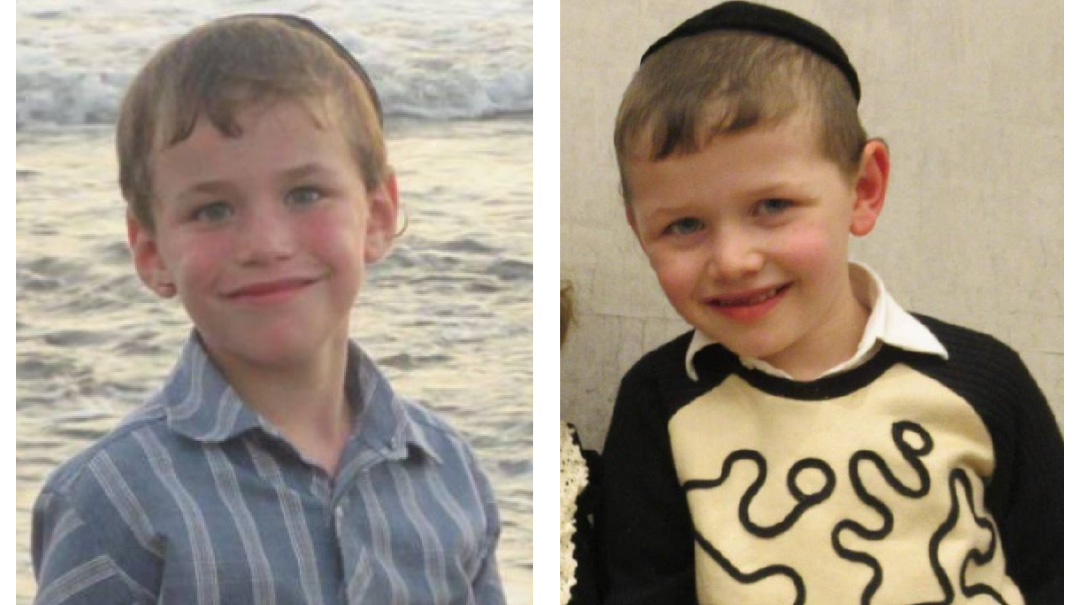
You read about the Meron tragedy, other terror attacks, all the heroism and strength, and you think, okay, that’s for other people. And then suddenly you’re in the middle of the story yourself
D
uring that first Shabbos, when the family was still reeling from the shock of the attack and Yaakov’s rushed levayah, Moishy turned to Devory. “Ima,” he said, “I know why this happened. Because whenever there’s a terrorist attack and it doesn’t happen in ‘our’ crowd, we don’t care enough. We think it happens to other people.’”
The weeks and months that followed shattered any divisions between “our” and “their” circles. As the mother of two martyred sons who spoke of faith and belief at her darkest moments, Devory has become a magnet for stories from others reaching out to her, people she never met but who become connected through their own challenges. One of those was a doctor who had decided to take on mitzvah observance.
This woman informed Rav Aryeh Shechter a”h, a popular speaker and one of the founders of Arachim, that she decided she would no longer drive to the hospital when she was on duty for Shabbos. She’d made the resolution in the summer, but now it was winter and the rains had hit hard. Still, she was determined to walk. And every time she left the house, the rain stopped. She told the Rav, “An entire winter the rain stopped just for me, so I know that Hashem really loves me and appreciates my sacrifice.”
To which Rav Shechter responded, “It’s true that Hashem loves you, and your teshuvah is really, really important to Him. But you should know, that the day you leave the house and you get drenched by the rain, Hashem loves you even more.”
He explained: “When a toddler starts to walk, his mother holds his hand so he won’t fall. But when she sees that he’s already stable, she lets go. She knows that even if he falls, he’ll figure out how to get up on his own, and will be even stronger for it. At the beginning of the journey, Hashem is holding your hand so you don’t fall, but as soon as He sees that you won’t fall, He doesn’t need to hold you up anymore. He has confidence in your strength.”
“Sometimes,” says Devory, “we look at our life and think, Hashem, what do You want from me? Why did you do this to me? We don’t know, but what we do know is that we won’t fall. That He loves us and is watching over us, like the mother who watches her child fall. She has never abandoned him. She’s there in the background the entire time.”
I Didn’t Choose This
Devory admits that she still hasn’t adjusted to the new role that’s been thrust upon her. “People stop me on the street to share their troubles, to get words of chizuk,” she says. “That kind of public role was never our lifestyle, and I certainly didn’t choose it.”
But Hashem, it seems, has handed her a microphone. And that’s why, on her 40th birthday, which came on the heels of the shivah, she publicized an initiative: Devory is a long-time administrator of the Ayelet Hashachar organization’s Project Chavrusa, which pairs frum women with their secular counterparts for weekly conversations and Torah learning. With the help of media personality Sivan Rahav-Meir, she announced her commitment to arrange 40 meetings between religious and secular women. In the end, she got over a thousand new signups.
“I was truly shocked at the greatness of Am Yisrael,” she says. “It’s not just the words of kindness and compassion, or even the ongoing help, the surprise fruit platters and other gifts of value — it’s the letters that don’t stop coming, the knocks on the door from total strangers, the commitments to improve. One woman rang the bell and handed me a bag of hair. ‘For ages I’d been thinking of cutting my wig to a more modest length,’ she told me, ‘and after all you went through, I finally decided to do it — my own sacrifice. Here it is.’”
For some people, Devory’s unabashed talk of faith and belief in front of the cameras was as confusing as it was arresting. During the shivah, a secular, self-described atheist came to the house. He soaked up the scene, talking to people, snapping pictures, and tried to digest what he was experiencing in the crowded shivah house.
“He was really agitated because we were speaking a language he wasn’t familiar with,” says Devory. “During shivah, everyone’s heart was open and I asked people to take on some sort of spiritual commitment in the zechus of the children. So many hundreds, thousands of positive kabbalos soared to Shamayim. And I asked him, ‘So, what did you take on?’ He said, ‘Me? I’m not a believer. I’m a practical person.’ I pressed further. ‘And what do you do when it gets hard for you, when you’re faced with painful challenges?’ He shrugged. He had no language for facing challenges of the spirit. After all, he was a practical person. So I told him, ‘What could be more practical than being a maamin?’
“Another journalist asked me, ‘Where do you get the strength to look at life through the eyes of emunah?” I told her, ‘You’ve got the question backward: It’s the emunah that gives the koach to look at life.’ Of course, we’re not looking for those challenges. We all want an easy life. But when the hard times come, how do we react? That’s where emunah comes to the fore. And you should know, every Jew has it, it’s just often buried so deep people don’t even know it’s there.”
In Devory’s renovated home, the pictures of her slain children surround her. There are photos that friends enlarged and mounted, there’s an artist’s rendering that takes up an entire wall, there are posters and magnets and newspaper articles and a few video clips her kids discovered that went viral. Is it hard to look?
“After the shivah, I didn’t know what it would be like, if it would be overwhelming, bearable, or even comforting to see their faces,” Devory says. “But today, it’s not hard for me to look, because these images somehow became public property. It was no longer my personal loss, but some kind of expiation for Klal Yisrael.
“We were at the Kosel recently and were approached by a soldier who had just come back from Jenin where he was lightly injured. He recognized us and showed us his wallet — he carried a picture of the boys with him. He told us it gave him koach to fight the enemy even in the thick of the danger zone. People tell me, these weren’t just your children, these are Klal Yisrael’s children.”
And their eyes. Even the secular journalists noticed. In one of the secular papers, a columnist analyzed the photo of the boys and tried to dissect why their eyes looked so pure. “Maybe,” he wrote, “it’s because these children didn’t see all the [improper] sights that our children see.”
It’s true, Devory says, that she and her husband made great effort to keep their pure children from seeing unwanted images. But she has asked people to take that caution in a different direction: not to view others with a “bad eye,” a jaundiced or resentful perspective.
“We know a family who didn’t talk to their neighbors for 17 years, over a fight related to an apartment renovation. After what happened, they made peace. They told us, ‘We decided that from now on, we’d view our neighbors with a good eye.’ ”
S
till, where does it come from, that rock-solid, unbendable, quiet strength to face the toughest challenges with a certain equanimity that we’d all like a piece of? Devory says it’s in our DNA, all the way back to the Avos and Imahos, but she had a closer connection as well. She tells the story of her grandmother, Chana Devorah Karlinsky, whose name she bears. This grandmother was a survivor of the Chevron massacre in 1929.
“When the Arabs began their rampage, she was hiding in a shed with her baby — my uncle — and a group of yeshivah bochurim who’d escaped the initial onslaught. The baby was crying, and they were having a serious halachic discussion: If the baby is endangering the lives of others, is it permissible to smother the baby? They were in the middle of discussing this very technical halachic issue, when the Arabs came in with their knives and machetes and started slashing everyone. My grandmother was injured in her hand, but they were miraculously saved — there was so much blood that the Arabs thought they were dead and they left.
“One of my older cousins once asked her: ‘Savta, at that moment, when your baby’s life was hanging in the balance, when he was crying and others were determining his fate, what did you do? What did you say in his defense?’ She said, ‘What could I do? These were talmidei chachamim and it’s a specific sugya in the Gemara, so I was quiet. I had nothing to say. Hashem issued a ruling, and who was I to overturn it?’ That was my grandmother, so I guess that’s in my DNA, too.
“It’s true,” Devory says, “that our story got a lot of publicity, but there are so many brave, strong men and women who face huge challenges and tragedies, and they persevere with quiet dignity, connected to Hashem in a real way without any fanfare, with reservoirs of deep emunah and acceptance.
“I see so much pain and I just want to cry out, ‘Hashem, Am Yisrael wants to get closer, but it’s so, so hard. There are so many challenges all around, so much confusion and distraction, the way the unholy bombards our most intimate and personal spaces. Hashem, help us all tap into those reserves of faith You planted within us, so that we can all come back to You without any more korbanos.’ ”
(Originally featured in Mishpacha, Issue 978)
Oops! We could not locate your form.





